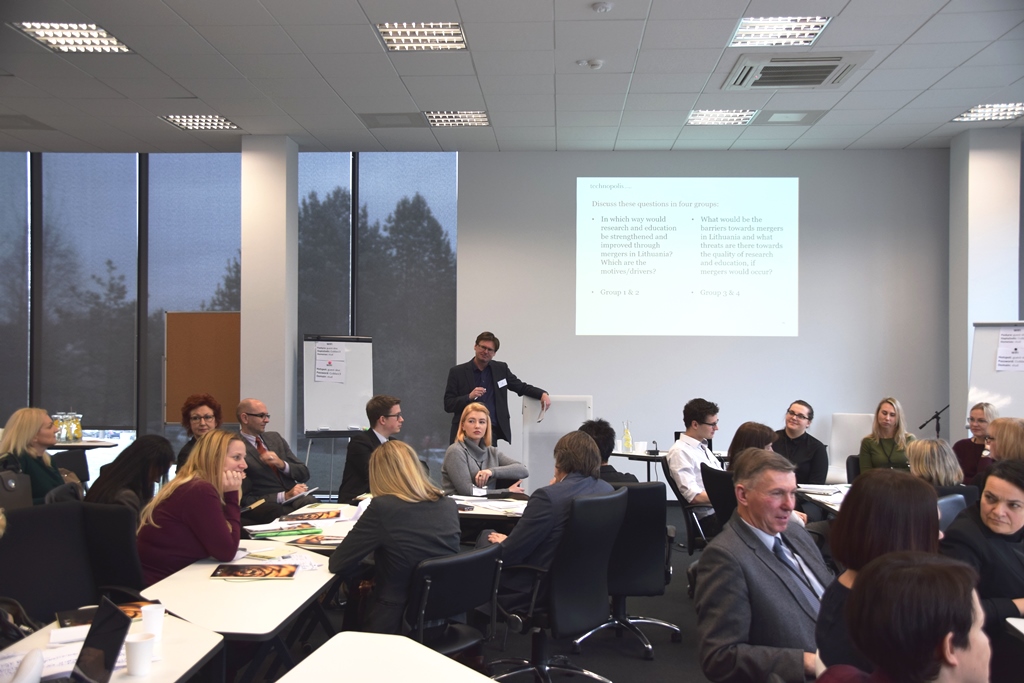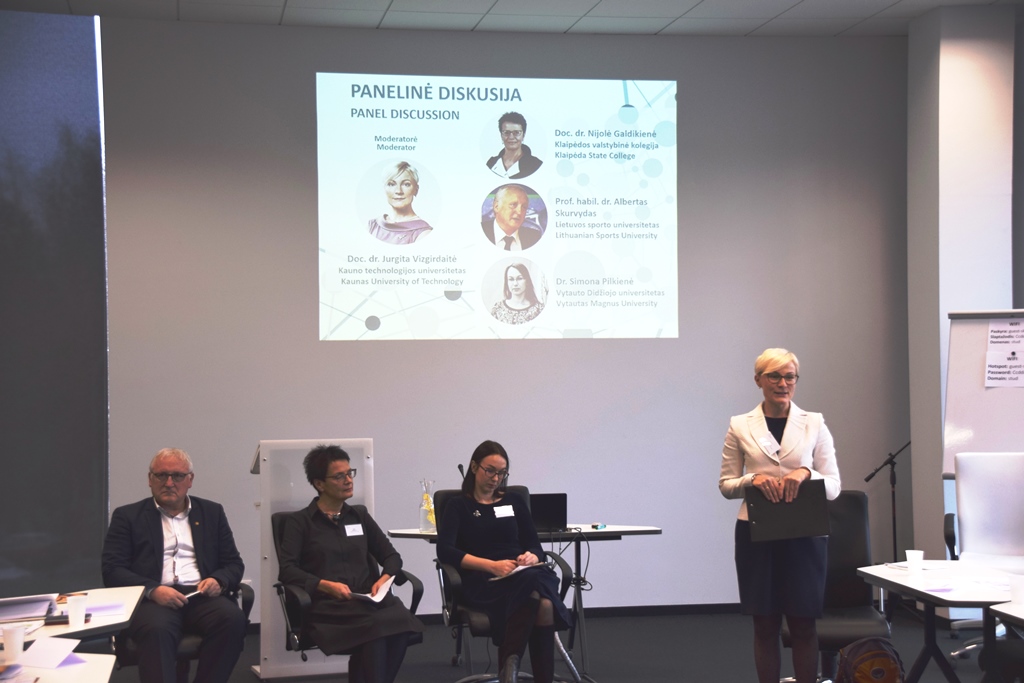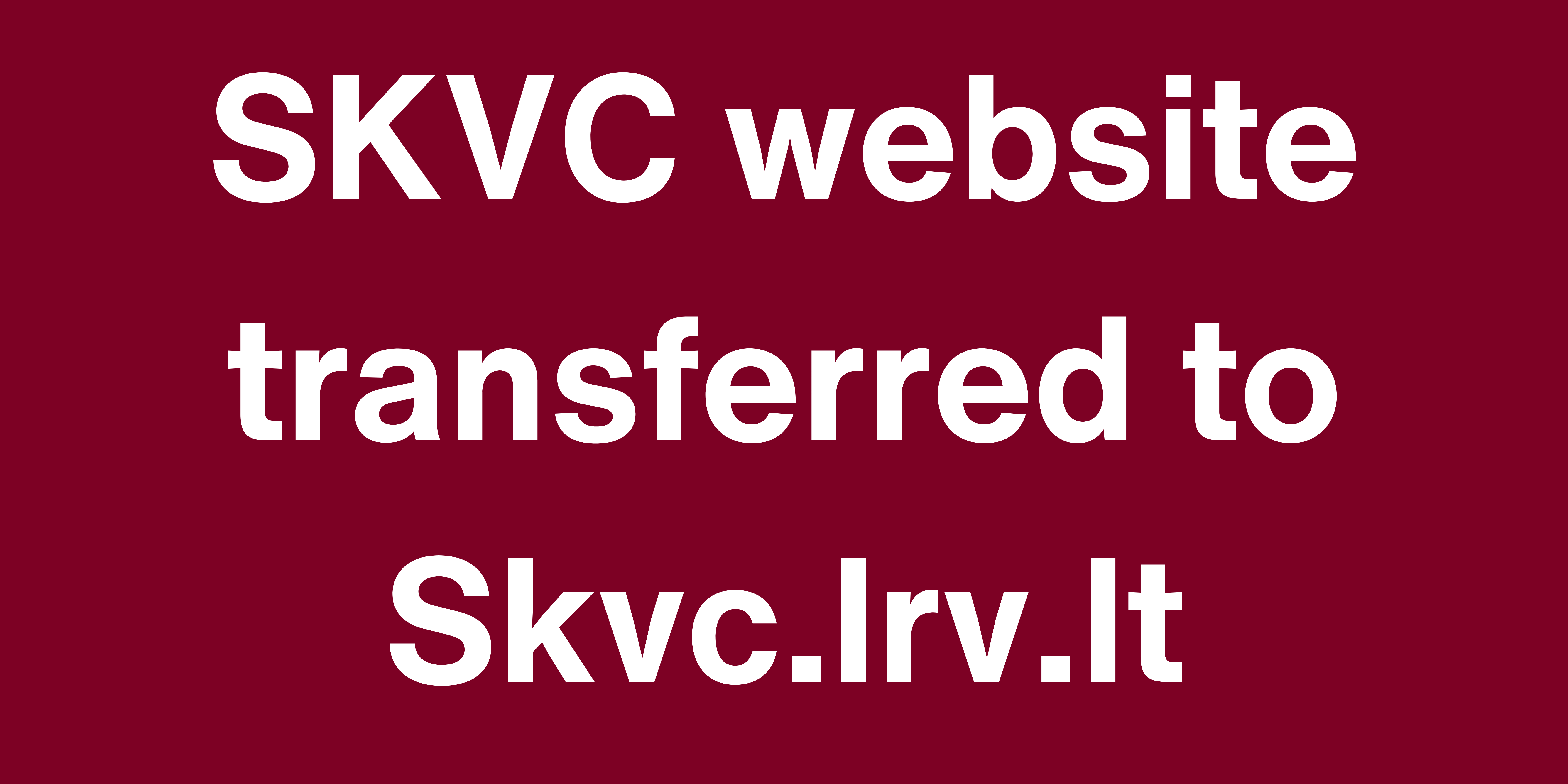On 28 November, Centre for Quality Assessment in Higher Education (further referred to as SKVC) organized a seminar for quality assurance agents in higher education institutions that was discussing a theme of quality during the time of changes.
Seminar was opened by Vice-minister of Education and Science dr. Giedrius Viliūnas, who noted that standard European practice for quality assurance is not enough and the changes are necessary in order to pursue best quality possible through distributing responsibility and empowering other methods, such as supervision and monitoring. In addition to that, regarding the current situation, it has been noted that the political orientation to joining out the higher education institutions is a tool to reach better study quality, not the overall aim of the policy.
Agenda of event was heavily focused on changes and how to control them. Dr. Virginijus Lepeška (OVC Consulting, Lithuania) introduced the most common mistakes and practices creating a strategic plan. He also remarked that change is necessary for a flexible, vibrant organization. Assoc. prof. dr. Göran Melin (Technopolis, Sweden) presented experiences in mergers and reorganizations of such countries as Denmark, Sweden, Norway and China. It was also noted that studies are the service, and the end recipient is the most important, which, in this case, is a student. More about the role of a student was presented during one of the last presentations. Student representative from Sweden, Marcel Tarbier, noted and introduced his insights into how important for a student is to get feedback and to be involved in strategic processes.
In addition to that, guests from Lithuania introduced their experiences in managing the changes and strategic processes. Dr. Paulius Baltrušaitis presented experience of Kaunas College, and it was important to note that one of the crucial parts of change management is right staff – both employees and students.
One of the major parts of the event was a panel discussion “Optimizing Higher Education – How to Maintain Study Quality?” that was moderated by assoc. prof. Jurgita Vizgirdaitė. During the discussion, assoc. prof. dr. Nijolė Galdikienė presented the successful experience of Klaipėda State College in optimization of structures and noted that strategic planning, prioritizing and conservation of good practices is the most important part of the reorganization process, while dr. Simona Pilkienė argued that communication and consensuses are more important giving a merger of Aleksandras Stulginskis University, Lithuanian Educational University and Vytautas Magnus University as an example. Prof. hab. Dr. Albertas Skurvydas presented an opposing opinion, in which he stated that it is more important to concentrate on cultivating good practices in each university, leaving each institution to decide which of the practices is more suitable – that way each institution can decide whether to merge, reorganize or allocate resources differently, and only the best could make its’ way to the overall higher education market.
Seminar was ended with presentation of a new application which is developed by SKVC, together with LSS (Lithuanian Student Union) and with support from LAMA BPO (Lithuanian Higher Education Institution’s Association for Organization of General Admission). This app could enforce faster ways of gathering students’ feedback and data about study quality, which might be used for quality improvement both by SKVC and higher education institutions. It is expected that this application will be available in the first half of 2019. Further discussions about the means of receiving feedback from students were held on 6 December.


More photos on our Facebook page



